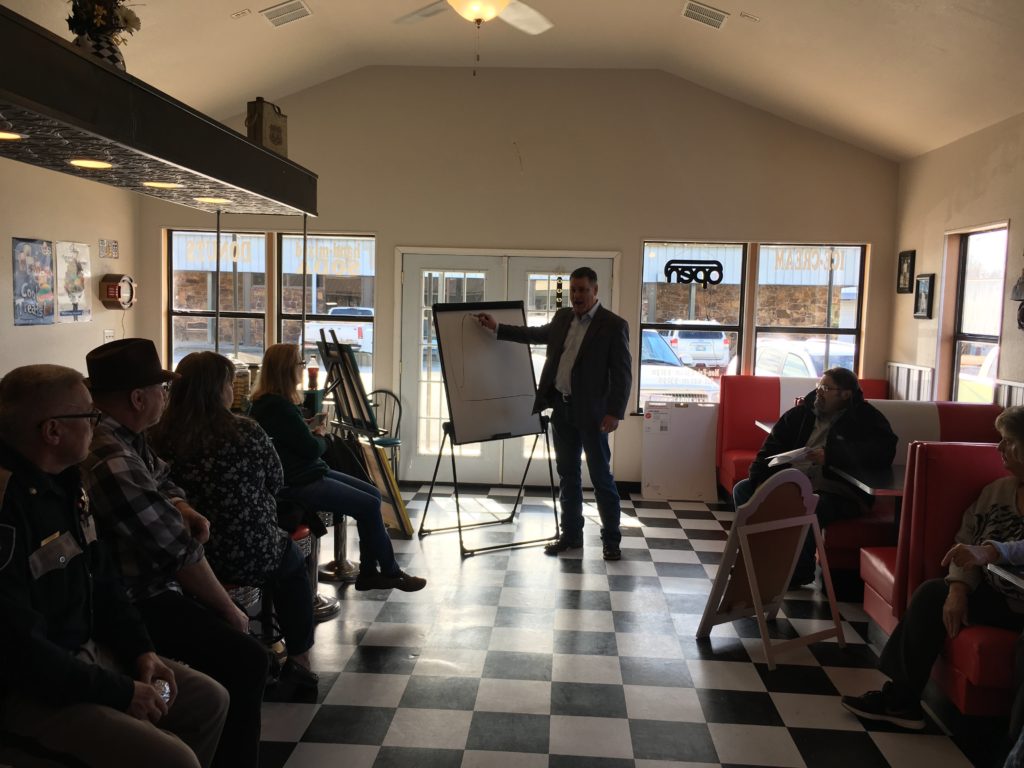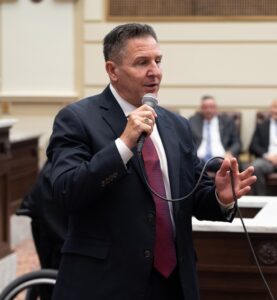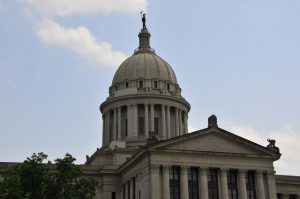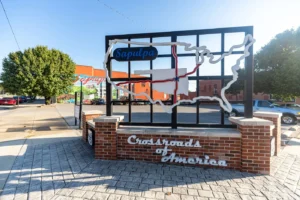It isn’t every day that you’ll catch a state senator at a small-town donut shop.
But honestly, you’ll probably catch senator James Leewright at a place like that more often than not; as he set up his whiteboard and began his talk to the folks who had gathered at BJ’s Donut Shoppe (55 E. Buffalo in Kellyville), he pointed out that he lived exactly 6.2 miles down the road, between Kellyville and Bristow, and that he was glad to get the chance to come out and hear from the people he represents.
Leewright is already extremely accessible: he gives out his cell number to anyone who asks. But he said he still enjoys the chance to get out and meet people face to face.
“Most of the time, when I get a call, they’re asking me, ‘what were you thinking, not signing that bill?’ But at least they do call, and I can talk them through why I made that decision.”
As the crowd gathered, so did the questions, and Leewright addressed them all, starting with the state budget. Since the state budget seems to rise and fall on oil revenue, Senator Leewright brought up the most major step the state was taking to help soften the blow from the oil industry’s downturn.
“The biggest problem is that there are things that are structurally wrong with our state budget, such as not having a savings account,” Leewright says.
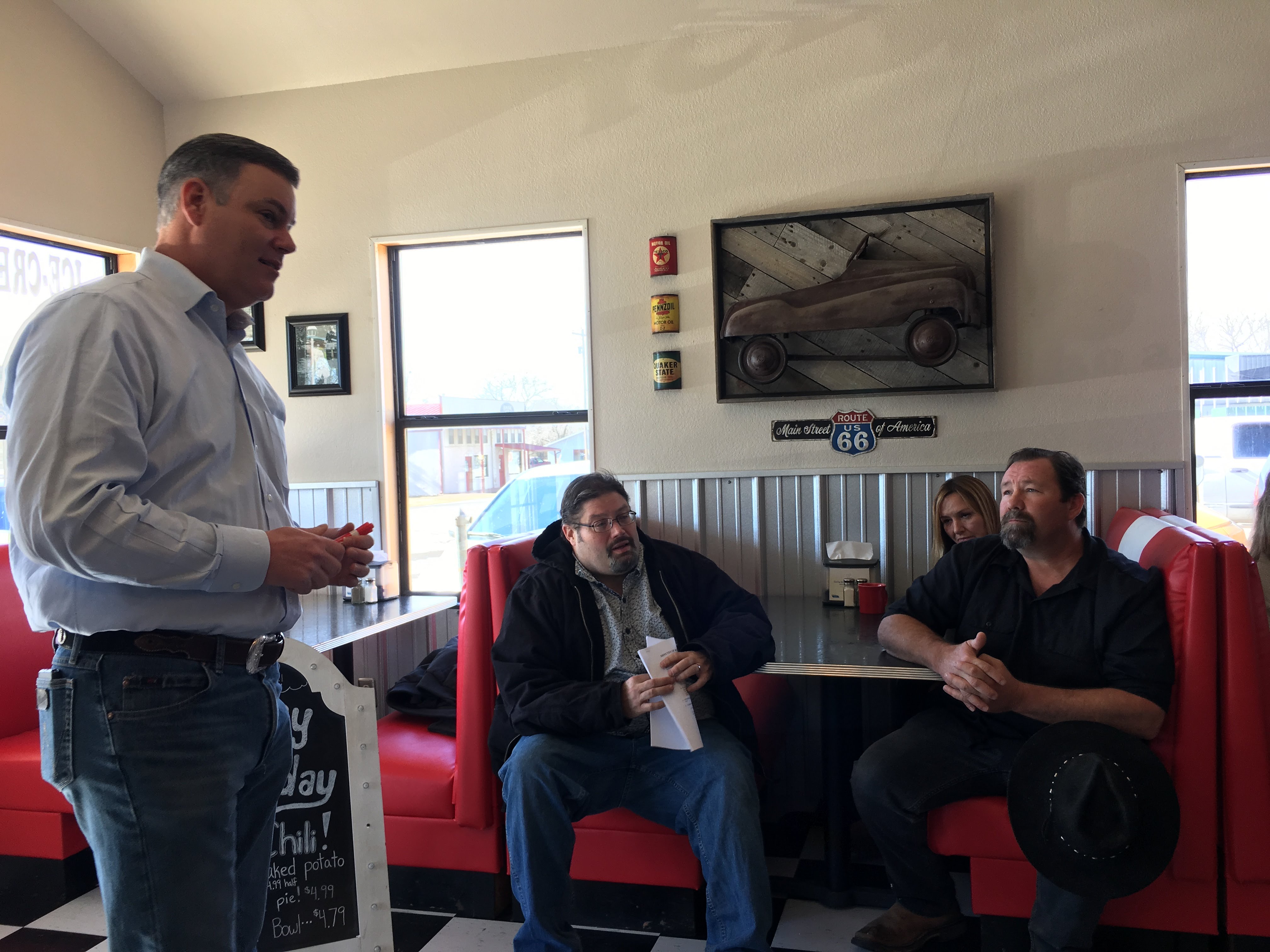
The Energy Revenues Stabilization Act, based on House Bill 2763, co-authored by Leewright, puts the state on a five-year rolling average according to Gross Production Tax. The idea is when the state is doing well, any amount taken in above that average will go into a fund to help tides us over during the down years. The key is only taking out the amount needed to get the state back to that rolling average. Leewright says it doesn’t mean that Oklahoma will not still have ups and downs, but this will help soften the those swings, so that we’re better able to handle them. Alaska and to a greater extent North Dakota had previously adopted similar acts and have seen themselves weather the downturns, or even do well in spite of them. It’s a long game though, and 2 years into the plan this May, Oklahoma is still working to get back to the benchmark before the losses incurred during 2016.
Marcia Jones of Kellyville asked about how state funds were being used to provide support for the elderly and advanced care. She recounted a situation with her mother that left her feeling as though she was paying for services she wasn’t receiving. Leewright brought up another piece of legislation that he had helped create, called The Agency Performance and Accountability Act. It’s purpose is to ensure that the top 20 agencies in Oklahoma, which make up the overwhelming majority of the state budget, should be audited at least every four years to prevent waste and overspending.
These audits don’t come cheap, each one costing $500,000 to $1,000,000.00 and taking as long as 6-12 months. Even if the outcome isn’t some earth-shattering revelation about wasteful spending (Leewright says some folks might be surprised by what gets—or doesn’t get—uncovered), Leewright is confident that the savings and the gathering of that new intel will be well worth the investment.
One of the more surprising stances that Senator Leewright holds to is the Oklahoma Turnpike system, which he believes should continue to charge a toll.
“About 40% of the money collected from Oklahoma’s Turnpike tolls are from out-of-state drivers,” Leewright says, pointing out that the fact that we have a way to collect funding from those who are coming into our state and putting wear and tear on our roads is a good thing. In addition, Leewright adds that the toll is a “consumption tax,” meaning we do have a choice about whether or not to participate. “If I don’t want to pay the toll to get to Oklahoma City from here, I can just take Route 66.”
Overall, Senator Leewright is hopeful about what’s coming for our state, and said so several times. As the Chairman of the Senate Business, Commerce and Tourism Committee (possibly the first Senator in state history to be appointed to independently chair a standing Senate committee as a freshman member), he’s in a prime position to help Sapulpa, Kellyville and other surrounding communities take advantage of what’s becoming the third-fastest-growing revenue source for Oklahoma: tourism. Hopefully, we’ll have more donuts and coffee over another conversation about that really soon.

